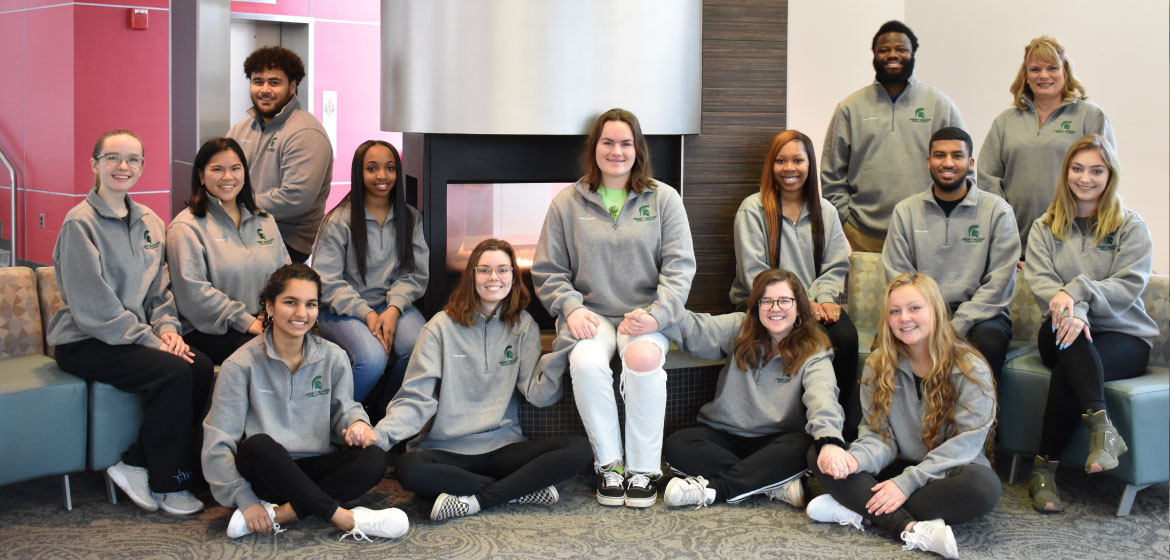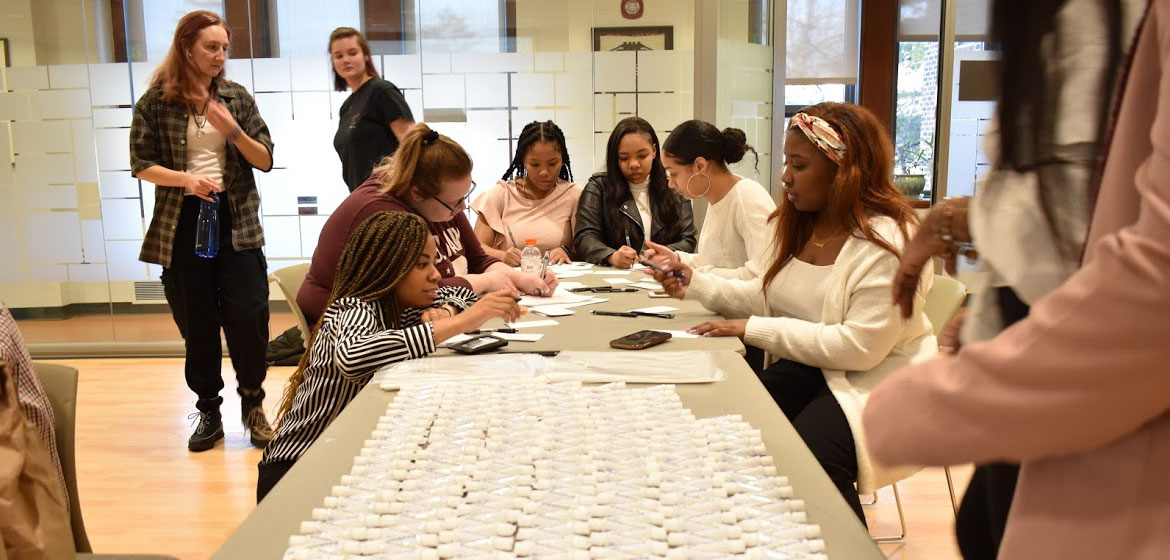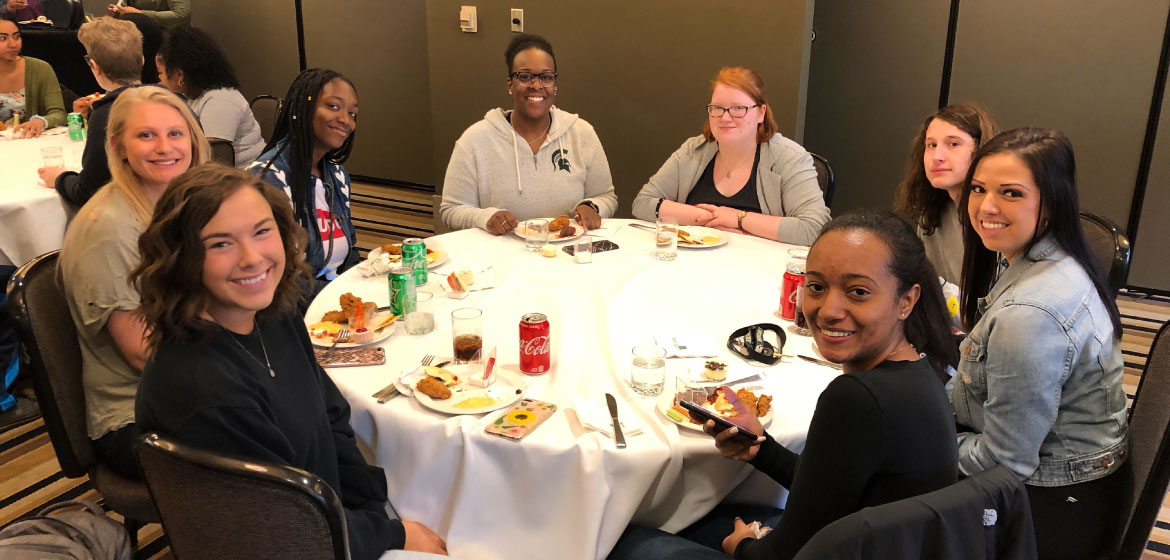Beyond-the-Classroom Community-Engaged Learning
Notable Numbers
in beyond-the-classroom learning experiences
MSU Community Engagement Scholars

During the 2019-2020 academic year, there were 13 MSU Community Engagement Scholars, five of whom were additionally given the honor of serving as Ford Global Scholars. The scholars engaged with eight community partner organizations situated in Flint, Detroit, and Lansing. Those organizations included the mayor’s offices in both Detroit and Lansing, and Lansing community organizations such as the Refugee Development Center.
The scholars represent various academic programs and social interest areas. Each year there are return scholars who report that the educational stipend and the sense of belonging they receive as part of the scholar cohort make the program essential to their college experience and success.
In addition to the scholars, two graduate students from the Master’s in Student Affairs Administration served as program coordinators. The coordinators, in collaboration with the director of the Center for Community Engaged Learning, developed cohort training and development workshops and experiences. This type of engagement enhanced the coordinators’ graduate experience by creating space for them to work individually and in a cohort model, an experience that is not always present in their graduate assistantship position in housing.
This program was in its fourth year of operation during the 2019-2020 academic year. It is a joint program of the MSU Office of the President and the Center for Community Engaged Learning (CCEL). The scholars continued engagement and project completion, with impressive success, from March through April 2020. The program was offered in a virtual format due to the COVID-19 restrictions on campus and in the community. The program year culminated with a virtual scholar showcase. The MSU president, CCEL director, and participating community partners all gave remarks. The scholars presented their projects to MSU leadership, community partners, faculty, parents, and peers.
Days of Service
Days of Service Statistics
Fall 2019 participants
472Spring 2020 participants
1,005Total participants
1,477Total Day of Service hours
7,385(1,477 total participants x 5 hours per person)
$200,872
Value of service back into the community
(based on estimated figure from Independent Sector)

The Center for Community Engaged Learning assisted in hosting four Day of Service events during the 2019-2020 academic year, one of which was facilitated virtually. Combined, the Day of Service events generated 7,385 Day of Service Hours (Fall 2019 472 participants + Spring 2020 1005 participants = 1477 Total Participants x 5 hours per person), with 22 community partners located in the Greater Lansing area and beyond. Service projects ranged from cleaning up community gardens to assembling personal care packages and lunches to organizing donated clothing items.
When the COVID-19 pandemic caused programming to become virtual, our students continued to make a difference in their own communities by participating in remote service projects that included supporting essential workers, writing letters to veterans, and raising funds to help animals in need. Seeing the interest our students had in virtual volunteering, the Virtual Summer of Service Challenge was created to engage students in over 25 different service projects throughout the summer. Over 160 students all around the world partook in projects that focused on advocacy, philanthropy, and volunteering in their local communities.
America Reads

The America Reads/America Counts program at MSU has been housed in the Center for Community Engaged Learning for over 20 years. This is a federal Work-Study program that trains MSU students to become reading and math tutors for youth-serving organizations in the greater Lansing area. Through this program, college students with federal Work-Study support can fulfill tutoring responsibilities by working alongside teachers in the Lansing and East Lansing school districts to improve the math and reading skills of children and youth from diverse socio-economic, cultural, ethnic, and racial backgrounds. This year, approximately 70 tutors worked in six Lansing area schools and four East Lansing schools while also providing support to the Edgewood Village afterschool program and the Boys and Girls Club of Lansing.


